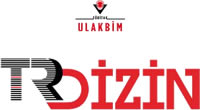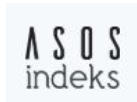Sosyal Bilgiler Öğretmenlerinin Müze Eğitimi Konusundaki Düşüncelerinin Çeşitli Değişkenler Açısından İncelenmesi
DOI:
https://doi.org/10.15659/jancr.v8i3.193Anahtar Kelimeler:
Müze- müze eğitimi- sosyal bilgiler öğretmeniÖzet
Bu araştırmada, sosyal bilgiler öğretmenlerinin müze eğitimi ile ilgili görüş ve düşüncelerinin çeşitli değişkenler açısından incelenmesi amaçlanmaktadır. Çalışmada sosyal bilgiler öğretmenlerinin müze eğitimi konusundaki görüşleri “Müze ve Müzede Eğitim Ölçeği” aracılığıyla elde edilmiştir. Çalışmada, nicel araştırma yöntemlerinden biri olan ilişkisel tarama modelinden yararlanılmıştır. Araştırma sonuçlarına göre, çalışmaya katılan Sosyal Bilgiler öğretmenlerinin cinsiyetlerine göre müzelerde eğitim alanında oluşan beklentiler faktöründe kadın öğretmenler lehine anlamlı farklılık tespit edilirken katılımcıların kıdem yılına göre dağılımlarda anlamlı farklılık bulunamamıştır. Katılımcıların mezun olduğu lisans eğitimlerine göre müzelerin kişisel gelişime etkisi faktöründe sosyal bilgiler eğitimi alanından mezun öğretmenler lehine anlamlı farklılık bulunmuştur. Hem müzelerin eğitime etkisi hem de müzelerde eğitim alanında oluşan beklentilerde müze eğitimi konusunda hizmet içi eğitimi alan öğretmenler lehine hizmet içi eğitim almayanlara göre anlamlı farklılık göstermiştir. Müzelerin kişisel gelişime etkisi faktöründe de müze eğitimi ile ilgili mesleki bilgi ve becerilerini geliştirmek için bir kurs alanlar lehine müze eğitimi ile ilgili herhangi bir eğitim almayanlardan daha fazla olduğu sonucuna ulaşılmıştır. Müzede ders yapma durumlarına göre müzelerin eğitime ve kişisel gelişme etkisi, faktörlerinde müzede ders yapanların müzede ders yapmayanlara göre anlamlı farklılık gösterdiği sonucuna ulaşılmıştır. Alanı ile ilgili sosyal medya takip etme durumlarına göre müzelerin eğitime ve kişisel gelişime etkisi faktörlerinde sosyal medyayı takip eden öğretmenlerin lehine anlamlı farklılık tespit edilmiştir. Araştırmada ulaşılan sonuçlar doğrultusunda, müze eğitimi konusunda hizmet içi eğitim ve sosyal medya aracılığıyla kullanılabilecek uygun içeriklerin geliştirilmesi ve bu içeriklerin eğitim süreçlerinde etkin bir şekilde uygulanması önerilmiştir.
Referanslar
Abacı, O. (2005). Çocuk ve müze. İstanbul: Morpa.
Ata, B. (2015). Okul dışı sosyal bilgiler öğretiminde müzeler. (Ed.) Şimşek A.ve Kaymakcı S. Okul dışı sosyal bilgiler öğretimi. s.171-186. Ankara: Pegem.
Atagök T. (1999). “Çağdaş Müzeciliğin Anlamı; Müze ve İlişkileri” Yeniden Müzeciliği Düşünmek, Yıldız Teknik Üniversitesi, Basım Yayın Merkezi Yayınları,
Bektaş-Öztaşkın, Ö. (2016). Sosyal bilimler ve sosyal bilgiler, Sosyal Bilgilerin Temelleri, Ed. R. Turan ve T. Yıldırım, Ankara: Anı Yayıncılık.
Bolat Aydoğan, K. E. (2017). Museum education and practices course in the context of the visual arts teacher candidates’ opinions. Anadolu Journal of Educational Sciences International, 7(1), 72-106.
Çalışkan, E., Önal, N. & Yazıcı, K. (2016). What do social studies pre-service teachers think about virtual museums for instructional activities? TURKISH STUDIES- International Periodical for the Languages, Literature and History of Turkish or Turkic, 11(3), 689-706.
Çıldır, Z. (2007). Öğretmenlerle müzede yetişkin eğitimi-feza gürsey bilim merkezi örneği. (Yüksek lisans tezi). Ankara Üniversitesi Sosyal Bilimler Enstitüsü: Ankara.
Demir, A. (2015). Sosyal bilgiler öğretim programında müze eğitimiyle ilişkilendirilen kazanımların gerçekleştirilmesine yönelik sosyal bilgiler öğretmenlerinin yaklaşımları (Tokat ili örneği). (Yayınlanmamış Yüksek Lisans Tezi). Gaziosmanpaşa Üniversitesi Eğitim Bilimleri Enstitüsü, Tokat.
Demirel, İ. N. (2019). Kültür, uygarlık, sanat, müze. Serap Buyurgan (Ed.), Müzede eğitim öğrenme ortamı olarak müzeler içinde (s. 7-28). Ankara: Pegem Akademi.
Doğan, C. D. (2017). Using museums as a learning environment: Measurement and evaluation applications. Electronic Journal of Social Sciences, 16(60), 234-248.
Doğan, E., Güven, E. ., Koyuncu, B. ., & Ünlü, T. (2023). Öğretmenlerin sosyal medya kullanımı: Eğitimde iletişim ve öğrenmeyi destekleme potansiyeli. Ulusal Eğitim Dergisi, 3(10), 1705–1721. . https://uleder.com/index.php/uleder/article/view/369
Duran, E. ve Bayar, A. (2020). Öğretmenlerin Sosyal Medya Kullanımına İlişkin Görüşleri. Iğdır Üniversitesi Sosyal Bilimler Dergisi(24), 425-448
Erdoğan, T., (2003), Türkiye’deki Arkeoloji Müzelerinde Yapılan Faaliyetler-Dönem Projesi, Ankara Üniversitesi, Sosyal Bilimler Enstitüsü
Gürbüz, E. (2017). Sınıf Öğretmenlerinin Müze Eğitimine İlişkin Görüşlerinin Bazı Değişkenler Açısından İncelenmesi. Yüksek Lisans Tezi, Necmettin Erbakan Üniversitesi Eğitim Bilimleri Enstitüsü, Konya.
ICOM, (2022). http://icom.museum/the-vision/museum-definition/ adresinden alınmıştır.
Kapan, Y. S., (2011), Müzelerin Yetişkin Eğitiminde Kullanılmasına Yönelik Bir Program Denemesi-Rahmi Koç Müzesi İletişim Araçları Örneği, (Yayımlanmamış Lisans Tezi), Marmara Üniversitesi, Eğitim Bilimleri Enstitüsü, İstanbul.
Karadeniz, C. & Çıldır, Z. (2014). İngiltere’de müze eğitimi Londra’dan izlenimler (Ed. B. Onur). Ankara: Kalem kitap Yayınevi.
Karasar, N.. (2021), Bilimsel Araştırma Yöntemleri, Ankara, Nobel Akademi Yay.
Karasu Avcı, E. & Faiz, M. (2018). Sınıf eğitimi öğretmen adaylarının müze eğitimine ilişkin görüşleri. 2nd International symposium of education and values. Antalya.
Kaschak, J. (2014). Museum visits in social studies. The role of a methods course. Social Studies Research and Practice, 9(1), 107-118.
Körükçü, M. (2019). Değişen Müze Eğitimi Algısı Çerçevesinde Sosyal Bilgiler ve Tarih Öğretmen Adaylarının Müze Eğitimine Yönelik Öz-Yeterlik İnançları. Trakya Üniversitesi Sosyal Bilimler Dergisi, 21(2), 759-771. https://doi.org/10.26468/trakyasobed.542284
Milli Eğitim Bakanlığı (2019). 2023 Eğitim Vizyonu, https://tegm.meb.gov.tr/www/2023-vizyonu/icerik/23
Önen, F., Mertoğlu, H., Saka, M. & Gürdal, A. (2009). Hizmet içi eğitimin öğretmenlerin öğretim yöntem ve tekniklerine ilişkin bilgilerine etkisi: öpyep örneği. Ahi Evran Üniversitesi Eğitim Fakültesi Dergisi, 10 (3), 9-23.
Öztürk, A. (2017). Music museums in Turkey and their educational functions. Education Science Society Journal, 15(58), 116-129.
Rebetez, P. (1969). Bir Müze Nasıl Ziyaret Edilir? Ankara: MEB Talim ve Terbiye Dairesi Araştırma ve Değerlendirme Bürosu
Solmaz, K. (2015). Sosyal Bilgiler Öğretmenlerinin Müze Eğitimine Yönelik Görüşleri ve Uygulamaları. Munzur Üniversitesi Sosyal Bilimler Dergisi, 4(7), 40-54.
Şahan, M. (2005). Müze ve Eğitim. Türk Eğitim Bilimleri Dergisi. Sayı 4, Cilt 3.
Şar, E. & Sağkol, T. (2013). Eğitim fakültelerinde müze eğitimi dersi gerekliliği üzerine. Hasan Ali Yücel Eğitim Fakültesi Dergisi. 20(2): 83-90.
Şimşek, A. (2012). Araştırma Modelleri. İçinde: Şimşek, A. (Editör). Sosyal Bilimlerde Araştırma Yöntemleri. Anadolu Üniversitesi Yayınları. Eskişehir
Tezcan Akmehmet, K. (2013). Müzeler ve eğitim. E. Altınsapan ve N. Küçükhasköylü (Editör). Müzecilik ve sergileme (s. 128-154). Eskişehir: Anadolu Üniversitesi Açıköğretim Fakültesi Yayınları.
Tural, A., & Kala, F. N. (2018). Sosyal bilgiler öğretmen adaylarının müze eğitimine yönelik özyeterlik inançları. Sınırsız Eğitim ve Araştırma Dergisi, 3(1), 108-121.
Uslu, S. ve Yeşilbursa C. C. (2014). Öğretmen adayları için müze eğitimine ilişkin öz yeterlik inancı ölçeği geliştirme çalışması. Uluslararası İnsan Bilimleri, 11(2), 1306-1309.
Yıldırım, E. (2017). Müzelerin eğitimde kullanımına yönelik sınıf öğretmeni adaylarının görüşleri. HAYEF: Journal of Education. 14(2): 113-129.
Yılmaz, Ö. (2011). Müzelerin Eğitim Fonksiyonlarına Yönelik Müze Yöneticilerinin Tutum ve Fikirleri. Yüksek Lisans Tezi, Akdeniz Üniversitesi Sosyal Bilimler Enstitüsü. Antalya.
İndir
Yayınlanmış
Nasıl Atıf Yapılır
Sayı
Bölüm
Lisans
Telif Hakkı (c) 2024 Anadolu Kültürel Araştırmalar Dergisi (ANKAD)

Bu çalışma Creative Commons Attribution-NonCommercial 4.0 International License ile lisanslanmıştır.













